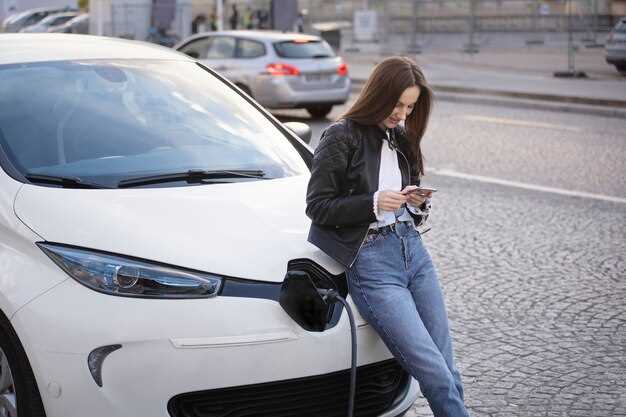
As the demand for eco-friendly transportation continues to rise, many budget-conscious buyers are seeking affordable options in the electric vehicle (EV) market. Used electric cars present a compelling opportunity to own a sustainable vehicle without breaking the bank. With a variety of models available, it’s essential to understand the factors that influence pricing and what to look for when shopping for a pre-owned electric car.
One of the primary advantages of purchasing a used electric vehicle is the significant depreciation that occurs within the first few years. This means that savvy buyers can acquire models from reputable manufacturers at a fraction of their original price. As EV technology rapidly evolves, earlier models can often be found at attractive prices, making them a feasible option for those looking to transition to electric driving.
Moreover, the availability of various makes and models in the used market offers a range of features, from performance capabilities to advanced technological options. Buyers should consider factors such as battery life, charging infrastructure, and warranty coverage when evaluating potential vehicles. By doing thorough research and understanding the current market landscape, budget-conscious consumers can find an electric car that meets their needs and aligns with their financial goals.
Best Models Under $15,000
For budget-conscious buyers looking for affordable used electric cars, several models stand out in the under $15,000 category. These options not only provide excellent value but also ensure you don’t compromise on quality and efficiency. Below is a table featuring some of the best electric cars available in this price range, along with their key specifications.
| Model | Year | Battery Capacity (kWh) | Range (miles) | Average Price |
|---|---|---|---|---|
| Nissan Leaf | 2015 | 24 | 84 | $10,000 |
| Chevrolet Spark EV | 2016 | 19 | 82 | $11,500 |
| BMW i3 | 2014 | 22 | 93 | $12,000 |
| Fiat 500e | 2015 | 24 | 84 | $9,500 |
| Ford Focus Electric | 2017 | 33.5 | 115 | $14,000 |
The Nissan Leaf remains a top choice due to its reliability and ample aftermarket support. The Chevrolet Spark EV offers a compact option perfect for city driving, while the BMW i3 combines unique styling with efficiency. The Fiat 500e is an excellent choice for urban dwellers seeking a fun, compact ride. Lastly, the Ford Focus Electric stands out for its spacious interior and longer range, making it a versatile option for various driving needs.
Each of these models provides an excellent entry point into the world of electric vehicles without breaking the bank. Factors such as mileage, battery health, and overall condition should be considered when making your purchase to ensure you get the best value for your money.
Evaluating Battery Health Before Purchase
When considering a used electric car, evaluating the battery health is crucial. The battery is the most expensive component of an electric vehicle (EV) and significantly impacts its performance, range, and overall value. Here are key factors to assess before making a purchase.
Start by asking for the battery diagnostic report, which should provide details about its current state of health (SOH). This metric indicates the battery’s capacity compared to its original specifications. A healthy battery typically maintains around 70-80% of its original capacity. Lower percentages may indicate excessive wear and could lead to diminished range.
Next, inquire about the battery’s charging history and usage patterns. Frequent fast charging can accelerate battery degradation, while regular use of Level 2 charging can be gentler on the battery. Understanding how the previous owner treated the battery can give insights into its longevity.
Consider the battery’s age as well, as lithium-ion batteries tend to degrade over time regardless of usage. Most electric vehicles have an expected battery lifespan of 8-10 years, depending on the model. Research the vehicle manufacturer’s warranty on the battery, as warranties can provide additional peace of mind regarding its expected performance.
Physical signs of battery health can also be telling. Look for any warning lights on the dashboard related to the battery or charging system. Testing the car’s range during a pre-purchase drive can also give practical insight, as significant drops in range during the test drive could indicate deeper issues.
Lastly, consider any third-party services or tools available for battery health assessment. Some companies offer services that can analyze the battery’s condition comprehensively, ensuring you make an informed decision.
Finding Suitable Charging Options for Used EVs
When considering the purchase of a used electric vehicle (EV), understanding charging options is essential. Charging infrastructure varies widely depending on location and vehicle compatibility. Here are key points to consider when exploring suitable charging options for used EVs.
Firstly, identify the types of charging stations available:
- Level 1 Charging: This involves a standard 120-volt outlet, typically found in homes. It’s the slowest charging method and is most suitable for overnight charging.
- Level 2 Charging: This type uses a 240-volt outlet and is commonly found at public charging stations, workplaces, and some home installations. It provides a faster charge, making it ideal for regular use.
- DC Fast Charging: These stations deliver rapid charging power, allowing EVs to charge up to 80% in about 30 minutes. They are typically found along highways and in urban areas.
Next, evaluate your charging needs:
- Daily Commute: Calculate the distance you plan to drive daily. This will help you determine whether Level 1, Level 2, or DC Fast Charging is necessary.
- Home Charging: Assess the feasibility of installing a Level 2 charging station at home. Consult with an electrician to evaluate your electrical setup.
- Public Charging Availability: Research local charging stations using apps and websites, ensuring that you have convenient access. Consider factors such as charging speed, cost, and availability.
Furthermore, think about the costs associated with charging:
- Installation Costs: If opting for a home charging solution, consider the initial installation costs for a Level 2 charger.
- Charging Costs: Investigate pricing structures for public charging stations, as fees can vary based on location and subscription services.
- Incentives: Look for local or federal incentives that may help offset installation costs or provide rebates for purchasing EVs.
Lastly, staying updated on charging technology is crucial. The EV industry is rapidly evolving, with improvements in battery technology and charging infrastructure. Regularly check for advancements that may enhance charging efficiency or availability.
By understanding the available charging options and assessing your personal needs, you can make informed decisions that suit your budget and lifestyle when purchasing a used electric vehicle.
Understanding Incentives and Rebates for Used Electric Cars
When considering the purchase of a used electric car, it’s essential to be aware of the various incentives and rebates that can significantly lower the overall cost. Many governments and local authorities provide financial incentives to encourage the adoption of electric vehicles, creating a potential savings opportunity for budget-conscious buyers.
One of the most common forms of incentives is the federal tax credit. While this is primarily aimed at new electric vehicles, some states offer tax credits that may apply to used models as well. It’s crucial to check local regulations, as these incentives differ by state and can change frequently.
In addition to federal tax credits, many states provide their own rebates for electric vehicle purchases. These can range from cash rebates at the point of sale to grants for making environmentally friendly choices. Researching state-specific programs can reveal substantial savings, allowing buyers to maximize their investment in a used electric vehicle.
Some regions also offer additional perks, such as access to carpool lanes, reduced registration fees, and exemptions from emissions testing. These benefits not only enhance the ownership experience but can also lead to indirect cost savings over time.
Furthermore, electric utilities may provide incentives for purchasing and charging electric vehicles. Programs can include rebates for home charging stations or discounted electricity rates during off-peak hours. Buyers should inquire about these potential savings when evaluating their purchase.
Finally, staying informed about both federal and state policies can empower buyers to take advantage of expiring incentives or new initiatives aimed at promoting electric vehicles. Comprehensive research into available incentives will ultimately lead to a more informed and financially sound purchase decision when selecting a used electric car.
Costs of Maintenance for Used Electric Vehicles

Maintaining a used electric vehicle (EV) generally costs less than maintaining a traditional gasoline car. However, specific factors impact the overall maintenance expenses that potential buyers should consider.
First, electric vehicles have fewer moving parts than internal combustion engines. This design typically leads to lower maintenance costs since there’s no need for oil changes, fuel filters, spark plugs, or exhaust systems. Standard maintenance for EVs mainly includes tire rotations, brake inspections, and periodic checks of the battery system.
Battery maintenance is critical and can be one of the larger costs for used EVs. While most batteries are designed to last a long time, replacement can be expensive, often ranging from $5,000 to $15,000, depending on the model. It’s essential to assess the battery health before purchasing a used electric vehicle, as a well-maintained battery can significantly reduce future costs.
Another cost consideration involves the electrical systems of the vehicle. Components such as the onboard charger, electric motor, and power electronics can incur costs if they require repair or replacement. However, these issues are less frequent, and many manufacturers offer long warranties on electric components, providing peace of mind to buyers.
Additionally, the overall reliability of EV brands can influence maintenance costs. Some manufacturers have a reputation for building reliable vehicles with fewer mechanical issues. Researching the specific brand and model can help anticipate potential maintenance expenses.
Finally, consider local incentives or tax credits that may be available for EV maintenance or upgrades, as this can offset costs. In conclusion, while used electric vehicles typically present lower maintenance costs than their gasoline counterparts, understanding battery health, electrical systems, and brand reliability is essential for budget-conscious buyers.
Tips for Negotiating Prices on Used Electric Cars
Negotiating the price of a used electric car can significantly impact your budget. Here are key strategies to help you get a better deal.
-
Research Market Prices:
Before starting negotiations, research the current market prices for the specific model you are interested in. Use websites like Kelley Blue Book, Edmunds, or Autotrader to gather data on average pricing in your area.
-
Know the Vehicle History:
Request the vehicle history report using the VIN. Look for any accidents, service records, or title issues that can give you leverage in negotiations.
-
Inspect Thoroughly:
Perform a detailed inspection or get a professional mechanic to assess the car. Identify any potential repairs that might justify a lower offer.
-
Highlight Incentives:
If the car qualifies for any government incentives or rebates, mention these during negotiations. This can sometimes motivate the seller to negotiate more favorably.
-
Be Prepared to Walk Away:
Establish your budget beforehand and stick to it. Be ready to walk away if the seller is unwilling to meet your price. This shows you are serious and may prompt them to reconsider your offer.
-
Timing Matters:
Try negotiating at the end of the month or quarter when dealerships may be more inclined to make sales and meet quotas. You might find better deals during these times.
-
Negotiate Based on Total Cost:
Consider the total cost of ownership, including charging costs, insurance, and potential repair expenses. Use this information to argue for a lower price.
-
Be Respectful and Honest:
Maintain a respectful tone during negotiations. Honest communication can help build trust, making the seller more likely to agree to your terms.
By utilizing these tips, you can enhance your negotiating skills and hopefully secure a great deal on a used electric car that fits your budget.
